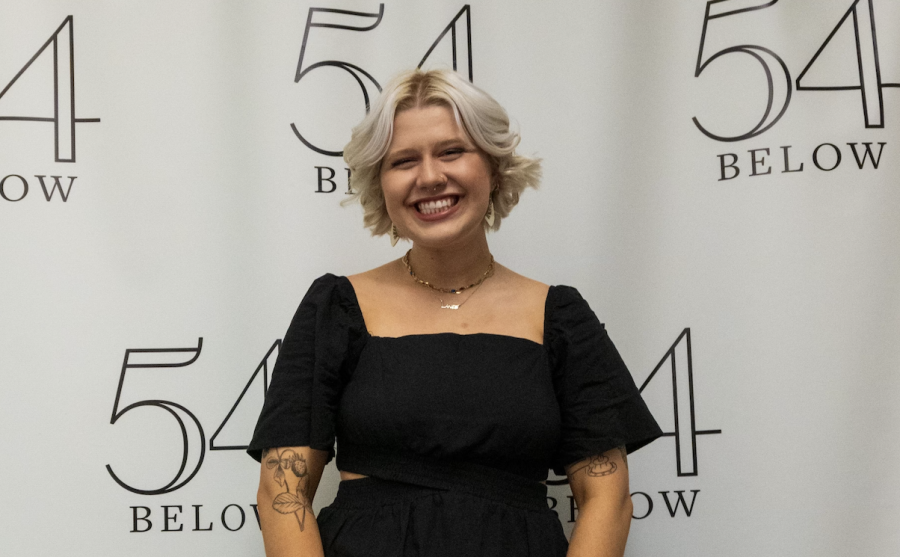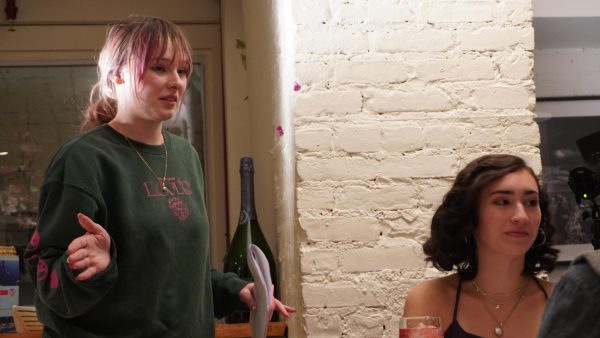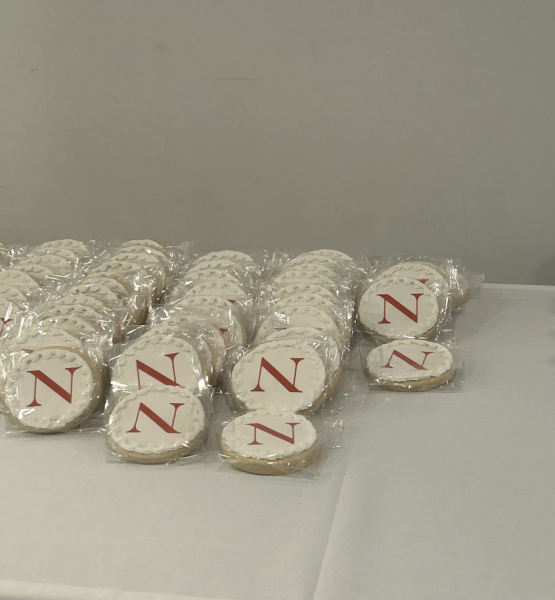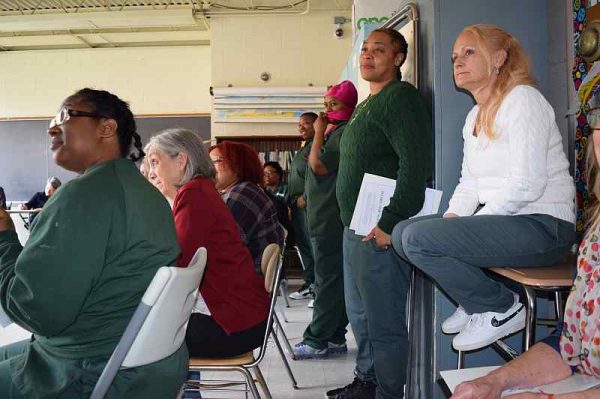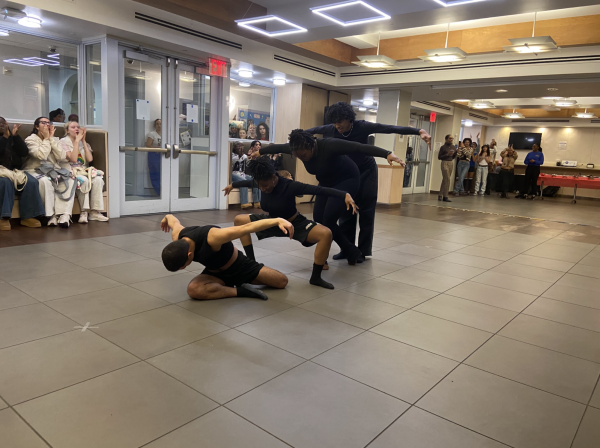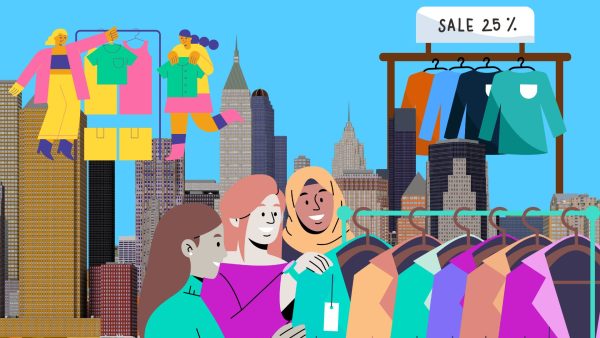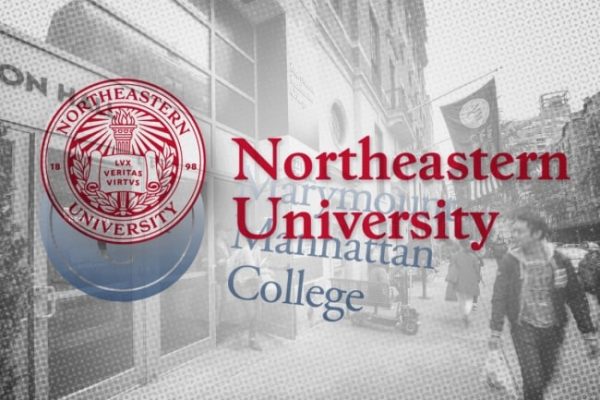MMC’s Lanes Miller: Entering the Theater Industry as a Non-Binary Performer
Reading Time: 5 minutesThis interview has been edited for length and continuity purposes.
Lanes Miller ran to their spot as places was called. They stood backstage, still in disbelief that this was really happening. They were making their Studio 54 debut. As they breathed deeply, trying to calm their nerves, they noticed they were standing right under a Little Shop of Horrors poster. It was that show that was one of their first lead roles, in which they played Audrey. Now, they were venturing into a NYC theatre staple, where they would soon get to celebrate a new milestone.
Lanes, a young non-binary performer, is entering the professional space of the theater industry at a time where discourse is continuous regarding how trans and non-binary people are represented, and what constitutes inclusivity.
In a time where non-binary actors in the performing industry are constantly feeling slighted and unseen, visibility and representation is more important than ever in theater spaces. This year, Liv Hewson and Justin David Sullivan have denied nominations for the Emmys and Tonys, respectively. Both were acts that protested gendered categories at the awards, as they were asked to erase parts of their identity to conform to the binary presented by the industry.
Lanes reflects more on the space and their experience within it in the following interview.
Kylee: When did you first know you loved theater?
Lanes: I knew I first loved theatre as a kid when my mom would play me cast albums in the car. My favorite shows, to this day, which I still have never seen professionally are A Chorus Line and Les Miserables. I remember sitting in my mom’s minivan at 11 years old as my mom made me wait to listen to Gavroche’s death so she could get gas. I cried the whole way home. I was just so moved by the stories through the music alone and that’s when I really fell in love with theatre as an art.
K: What has your experience in the performance space been like since you came out?
L: I came out to a lot of my friends before I ended up coming out “professionally.” I put that in quotes because it feels so formal to say it like that. I also think it’s in quotes because no one HAS to come out publicly, it just felt like the best move for me. It’s been really special to work with various queer performers and meet more queer performers in the industry. I especially feel lucky when I have the opportunity to speak with other trans theatre artists. It’s like… if they can do it, there’s a place for me too.
K: What are some of the difficulties you’ve had in the space?
L: I definitely get in my head. I never feel like I’m good enough, but I think imposter syndrome is something everybody struggles with. On a larger scale, I’m wildly passionate about accessibility in theatre and I think that is not where it should be. When I mention accessibility to theatre professionals, I’m often met with “Oh, that’s just accessible seating for people in wheelchairs,” and while yes, that matters, that’s not all that I’m talking about. I’m talking about everything from having access to artistic opportunities, to being able to see affordable, quality shows, to having disabilities represented on and off stage.
K: How do you cope with navigating through said difficulties?
L: By reminding myself of my mission. I exist to help spread accessibility to the arts and I would love to pursue that for as long as I live. I don’t know all of the details, I don’t know what that will all look like, but I would love to help mold a more accessible future in theatre.
K: Are there any struggles within the theater space regarding trans and non-binary people that you wish people recognized?
L: As a trans nonbinary person, I don’t feel like I’m taken seriously. I’m not seen girly enough to play a girl and I’m never taken seriously enough to play a man. It’s invalidating because everyone talks about wanting to be inclusive but won’t cast a trans person in a traditionally gendered role. I feel like my identity comes off as a joke. At what point will we stop producing musicals that center on cross dressing as a joke? When will I be taken seriously as a contender to traditionally male roles? I would love for the day to come where I’m just seen as a person. Not a “boy nonbinary” or a “girl nonbinary” or some third gender category. I transcend that.
K: Have there been any strides made in the theater industry regarding trans and non-binary representation that has made you feel seen?
L: I think that sometimes I’ll see a show and it will really speak to me, especially when I get to cheer on trans people involved in that show. Within the past year, I was living for Suffs, Shucked, and 1776. I was able to attend the Trans, Nonbinary, and 2 Spirit+ Community night at 1776 thanks to the Open House Project and Breaking the Binary. I have yet to see & Juliet, but that’s next on my list. I will also say that I got to work Dylan Mulvaney’s 365 Days of Girlhood event and that was the most affirming night ever. I felt so seen in my queerness and transness and so uplifted by the multitude of inspirational people in the room.
K: Why are visibility and representation of trans and non-binary people important today?
L: Representation has the power to transform lives. I didn’t think there was a place for me onstage because I’d never seen transness represented onstage before in my life. The first time I saw a trans person in a leading role was in Little Shop of Horrors in LA with George Salazar and MJ Rodriguez. I was a senior in high school, deep in the closet, and on a date with my high school boyfriend. I felt so validated and inspired, and for the first time I was able to identify what I was feeling with someone who reminded me of me onstage and that was special.
K: What are gaps in the industry that need to be filled in order to make trans and non-binary people feel safe?
L: In terms of filling in gaps in the industry, I don’t think I’m the best person to speak on it, as I am a young white person who’s still learning and growing. I want to be clear that the only way I’m able to exist today is because of the queer and trans POC who’ve literally died for me to exist. I want to make sure I carry them with me in all that I do. I will say though, that as a theatre performer, it’s not that hard to change keys. It’s not that difficult to stop sorting artists in gendered categories. It’s not that challenging to ask for and respect people’s pronouns. That’s the bare minimum. I’d love to be able to walk into an audition one day and not be put in a box. I want to just be seen as myself, which I think is what everybody wants on a fundamental level. Everyone wants to be seen, heard, and loved. Authenticity is a beautiful thing, and maybe one of these days I’ll have both Boq and Belle on my resume and be taken seriously.
K: Is there anything you want to share that you wish you learned sooner?
L: To my trans artist friends, you never have to prove you’re trans enough. It doesn’t matter how you dress or speak or present yourself. You’re you and that’s enough. I love what you bring to the table. My mom would always tell me, “Keep that sparkle”. Treasure that. It’s yours. And don’t let the transphobes dull who you are. You’re growing and you’re perfect and you’re you.

